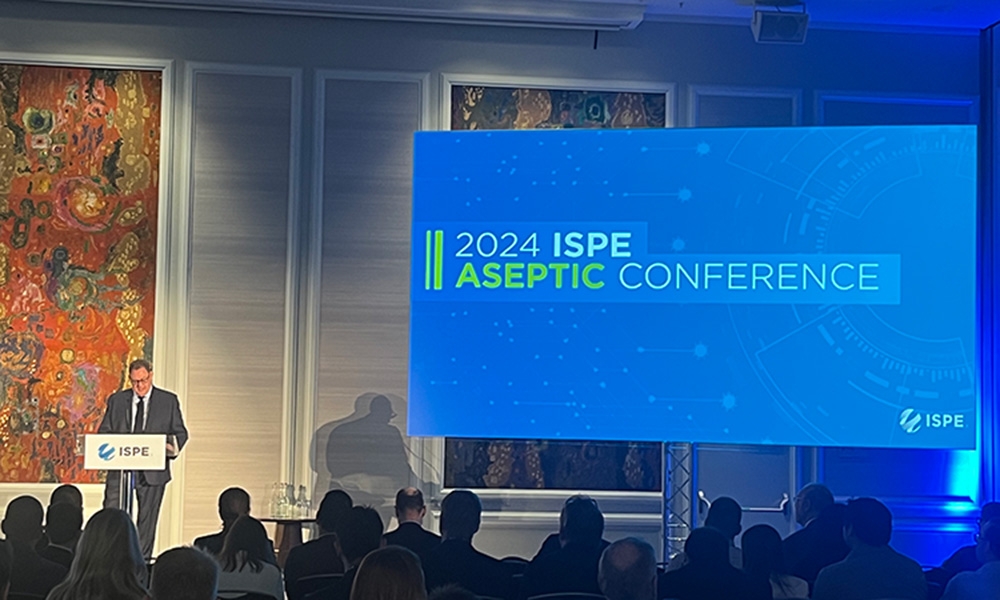Continuous OSD Manufacturing - A Product & Patient Perspective

Life Changing and Life Enhancing Drug Products via Continuous Manufacturing
Introduction:
In recent years much has been written about and presented on regarding the significant technical processing benefits of Continuous Manufacturing (CM) in the production of Oral Solid Dose Forms, namely coated Tablets. We’ve heard about the various direct compression, dry granulation and wet granulation Continuous Manufacturing platforms, the range of equipment design and configurations offered and the many facility size and cost reduction opportunities owners have seen. We’ve confirmed business case advantages, worked with QbD to achieve process robustness and have proved the platform capabilities to the FDA and other regulatory agencies, who have awarded the industry with several recent drug approvals.
The Continuous Manufacturing ball is rolling and our industry is well positioned for even further advancement in this arena and many more new drug approvals are anticipated in the years ahead. Continuous Manufacturing for OSD is a transformational platform that is here and is here to stay.
What has not been as widely publicized are the significant patient benefits Continuous Manufacturing has brought, via the life-changing/life-enhancing quality drug products being produced and supplied to market via the Continuous Manufacturing platform. In this blog, I would like to focus on this patient aspect of Continuous Manufacturing, highlighting three firms who have recently won FDA approval and whose Continuous Manufacturing produced products are making a life difference to many.
CASE I: Vertex Pharmaceuticals
Vertex was the first firm to secure a Continuous Manufacturing FDA product approval in July of 2015, with Orkambi. A 2nd product (Symdeko) was approved in early 2018. Both of their approved products are for the indication of cystic fibrosis (CF). Cystic fibrosis is a rare genetic, life threating disorder that damages the lungs and digestive system. It affects the cells that produce mucus, causing the mucus to be excessively thick and sticky, reducing lung function. According to the Cystic Fibrosis Foundation Patient Registry, in the United States:
- More than 30,000 people in the US are living with cystic fibrosis (more than 70,000 worldwide)
- Approximately 1,000 new cases of cystic fibrosis are diagnosed each year
- More than 75 percent of people with cystic fibrosis are diagnosed by age 2
- More than half of the cystic fibrosis population is age 18 or older
Living with cystic fibrosis is difficult and often dictates a very restrictive lifestyle. Typical symptoms of cystic fibrosis include a chronic cough, wheezing, difficulty breathing and germ growth in the lungs that people with healthy lung function tend not to have, increasing the opportunity for infection. Beyond the lungs cystic fibrosis also effects the digestive system and sweat glands.
Vertex’s Orkambi and Symdeko OSD Tablets work by getting more proteins to the cell surface and keeping them open to get a balance of salt and water in the lungs to improve function. These products are making a significant difference to those suffering with this in-curable disease.
The tablets are produced via a fully integrated GEA Continuous Processing Platform. Powders are fed to the system via Intermediate Bulk Containers (IBC), process includes both dry and wet granulation through to final coating, all in a continuous Process.
CASE II: Janssen Pharmaceuticals
Janssen Pharmaceuticals was the second firm to secure a Continuous Manufacturing FDA product approval in April of 2016, with their product Prezista. This OSD product is a protease inhibitor antiviral that prevents human immunodeficiency virus (HIV) from multiplying in the body. Prezista is used to treat HIV, the virus that can cause acquired immunodeficiency syndrome (AIDS). HIV, is one of the world’s most serious health and development challenges. According to The Joint United Nations Programme HIV and AIDS (UNAIDS):
- There were approximately 36.7 million people worldwide living with HIV/AIDS at the end of 2016. Of these, 2.1 million were children (<15 years old)
- An estimated 1.8 million individuals worldwide became newly infected with HIV in 2016 – about 5,000 new infections per day
- Currently only 60% of people with HIV know their status
- 1 million people died from AIDS-related illnesses in 2016, bringing the total number of people who have died from AIDS-related illnesses since the start of the epidemic to 35.0 million
Janssen’s Prezista OSD Tablets work to reduce the amount of HIV-1 in the patient’s blood. This is called viral load. Additionally the drugs works to increase the number of CD4+ (T) cells in the blood that help fight off other infections. This is a combination treatment this is making a difference in the lives of those who are suffering with this disease.
The tablets are produced via an integrated Direct Compression Continuous Processing Platform. Powders are fed to the system via vacuum conveyance to the feeders, on to blending, compression and coating, all in an uninterrupted, fully automated and PAT controlled continuous process.
CASE III: Eli Lilly Pharmaceuticals
Eli Lilly is the most recent firm to secure a Continuous Manufacturing FDA product approval. In September of 2017, Verzenio received regulatory approval. This OSD product is for the treatment of Metastatic Breast Cancer, a cancer that has spread to other parts of the body. Breast cancer is the most common form of cancer in the United States and The National Cancer Institute at the National Institutes of Health estimates that over 250,000 women will be diagnosed with breast cancer in 2017 and over 40,000 will die of the disease.
According to Richard Pazdur, M.D., director of the FDA’s Oncology Center of Excellence and acting director of the Office of Hematology and Oncology Products in the FDA’s Center for Drug Evaluation and Research "Verzenio provides a new targeted treatment option for certain patients with breast cancer who are not responding to treatment, and unlike other drugs in the class, it can be given as a stand-alone treatment to patients who were previously treated with endocrine therapy and chemotherapy,"
Lilly’s Verzenio is in a class of drugs known as CDK4 & 6 inhibitors. CDK4 & 6 are proteins that control how fast cells grow and divide. These proteins are found on both normal and cancer cells. They become overactive in MBC, causing cells to grow and divide uncontrollably. This leads to the spread of cancer. Verzenio interrupts these proteins and cells just as they are deciding to grow and divide. It slows down cancer cell growth and division, causing cancer cells to become inactive or even die.
The Lilly System is a semi-integrated Direct Compression Continuous Processing Platform that includes highly accurate contained powder feed, blending and tablet compression. A unique an innovative lift system supports the main process train allowing for ease of access, cleaning and change over. Eli Lilly won the 2017 ISPE Facility of the Year Award (FOYA) for applying this system in both their Indianapolis, IN and Carolina Puerto Rico facilities.
In summary, OSD Continuous Manufacturing is not only having an impact on the way we design and configure our processing platforms and manufacturing facilities, but more importantly is having an impact on the lives of our patients. As a Pharmaceutical Industry, we are making a difference and I hope this blog is an example of just some of the human element progress being made. Thanks to all the dedicate professionals that making this a reality.
Please join us on June 6th and 7th, in Arlington VA for the 2018 ISPE Continuous Manufacturing Workshop. We will bring together industry practitioners, regulators and academics to discuss the recent successes and remaining challenges for continuous manufacturing of small molecule drug substances and drug products. The conference will provide an in-depth view of the manufacturing technologies and regulatory approaches for successful development, implementation, and lifecycle management of continuous manufacturing both for new molecules and for batch-to-continuous conversions.
All three of the firms noted in this blog will be on the speaking panel.
About the author:
Dave DiProspero has 25+ years of pharmaceutical engineering experience in internationally regulated Oral Solid Dose Form manufacturing operations. He has worked as an owner's representative and as a direct employee for well-known equipment/technology suppliers and engineering firms. As an Associate/Director of Pharmaceutical Process Technology for CRB-Philadelphia, Dave is involved in front-end/back-end project consultation and planning, strategizing, design and engineering implementation/execution and is an experienced team communicator. He has a strong facility/process, design/engineering, containment, equipment, material handling and facility systems integration background. He is the current co-chair of the ISPE OSD Continuous Manufacturing Sub-Committee, a program committee member/session leader for the 2018 ISPE Continuous Manufacturing Conference and an industry advocate for Continuous Manufacturing.
References:
- Vertex Pharmaceuticals
- Janssen Pharmaceuticals
- Eli Lilly
- Food and Drug Administration (FDA)
- Cystic Fibrosis Foundation
- The Joint United Nations Programme HIV and AIDS (UNAIDS)
- The National Cancer Institute




